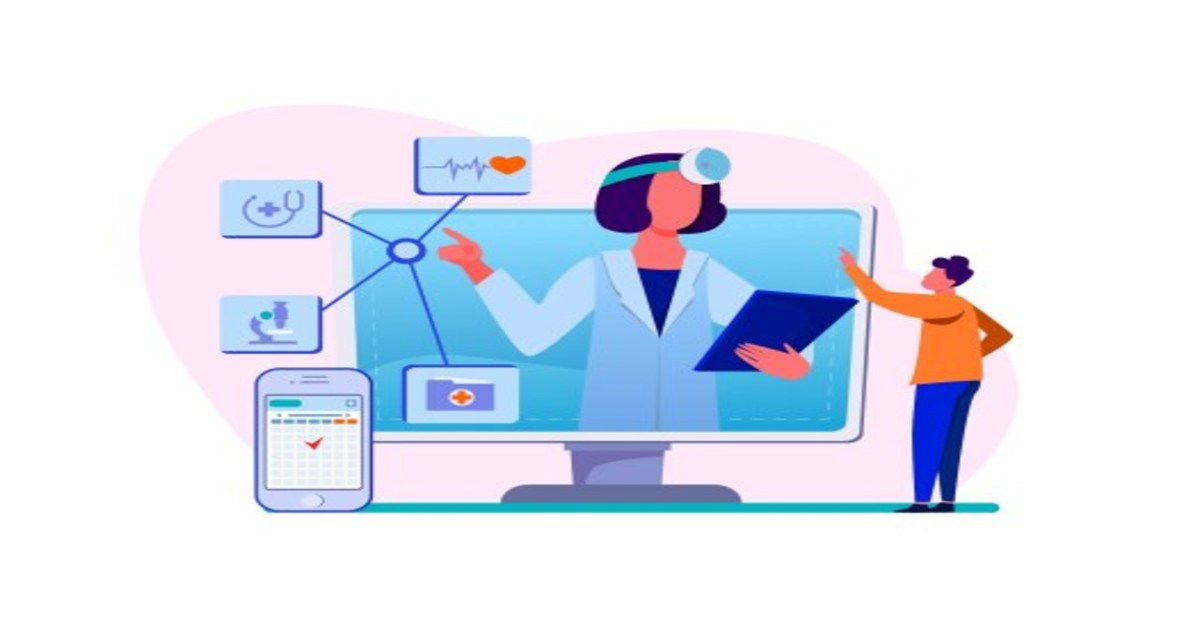
Healthtech Security
Article | November 29, 2023
Healthcare marketing, for a healthcare provider, is challenging as a lot of technologies are emerging in the market. What matters is choosing the right healthcare marketing techniques and technology to market your products and services. The global digital health market size was USD 51.3 billion in 2015. According to Global Market Insights, this is expected to have a compound annual growth rate (CAGR) of 25.9% from 2016 to 2025. However, to compete with your opponents and to face the challenges of increasing patients buying your products and services, you need an excellent and well-designed marketing strategy with the latest healthcare marketing trends.
As we have entered a new decade, healthcare providers should look into developments in the healthcare marketing brought out by the year 2020. The global pandemic has changed all the practices in the industry, including the style of healthcare marketing and technology. Since the turn of the century, online marketing has been a part and parcel of healthcare marketing. However, healthcare marketing is witnessing a new era. This can be attributed to the increasing integration of various smart devices in the everyday lives of people and the introduction of artificial intelligence algorithms. Are you ready to leverage these technological transformations and changes?
This article discusses some of the major healthcare marketing trends to be integrated into your healthcare marketing strategies.
Reviews Matter
One of the important healthcare marketing trends that you can use is online reviews from happy patients. Healthcare providers have largely relied upon these online reviews— the patient sentiment—to establish a reputation and acquire new patients. These reviews are widespread across multiple online platforms and anyone can easily access them.
A study conducted by Binary Fountain in 2019 claimed that 60% of people use online reviews to choose a healthcare provider. It also claimed that 75% are influenced by online feedback when they go for a healthcare provider. This shows how influential this healthcare marketing trend is. Thus, in 2021, healthcare providers should concentrate on acquiring positive reviews and replying to both good and bad reviews and feedback. It is crucial to respond to negative reviews for your online reputation management, as 70% of patients consider it important to address patient concerns publicly.
Content is King
Content marketing is yet another healthcare marketing trend that healthcare providers should focus on. Producing educational, entertaining, engaging, and high-quality content is crucial in increasing your online brand visibility and patient engagement. This aspect of online marketing came into existence ever since Google became the king in the search engine market and established their ever-evolving algorithms.
To leverage this healthcare marketing trend, healthcare providers should have a plan for creating content holistically and publishing it on multiple platforms in different forms. All content that goes online should be well-produced and authoritative. All forms of text-based content, such as articles, blogs, press releases, white papers, and case studies, should be well-written and have high-quality links. It is also good to add images to your content to increase engagement.
Within this healthcare marketing trend, video marketing is considered to be the most effective one because online visual content appeals to users more than any other form of content. To make the most out of your videos, you can run video ads on YouTube, share them on your social media pages, and post them on websites and landing pages.
Responsive, Fast Loading Websites
Among the online healthcare marketing techniques, it is very important to have a very responsive and fast loading website. Also, the navigation on the site should be smooth and easy. This is because the websites with these features win more patients.
Websites of healthcare providers with ads and pop-ups, navigation issues, and slow loading will make users leave the site in no time. This will be much realized in 2021 as patients expect websites to load instantly on all their devices, including their smartphones.
To increase patient acquisition, you may have to streamline and optimize your website for both mobile and desktop viewing. Here are some quick tips to make your website loading fast and navigation easy:
• Decrease image size on your website
• Switch to a faster web host
• Clean up unnecessary code.
Growing Influence of Social Media
Having a strong presence on all social media platforms is an effective digital healthcare marketing tactic. The online presence of your healthcare organization should not be limited to your website. To maximize your brand’s reach and to have an impact in 2021, you may have to make full use of all social media platforms. In terms of lead generation, engagement, marketing, and reputation management, Twitter, Facebook, and Instagram, among others, are turning more influential nowadays. According to Statista, social media has 2.82 billion active users. More specifically, according to Hootsuite, as of 2020, 90% of older adults use social media to seek or share healthcare information.
This most influential healthcare digital marketing trend can be effectively used by creating and promoting targeted ads on all these platforms. Also, by interacting with users through likes, comments, and shares and publishing content regularly, you can increase your organic reach. For any healthcare provider and marketer of 2021 and beyond, it is a massive mistake to neglect the power of social media.
Data-Driven Healthcare Marketing
In 2021, to personalize outreach campaigns, healthcare providers and marketers will have data and tools. Adhering to HIPAA regulations, healthcare providers can design various marketing materials according to key demographics, such as key health concerns, income levels, age range, etc. This is the more granular approach to reach new patients and to keep your regular and current patients loyal to your brand. This personalized healthcare marketing technique will make patients feel that they are treated well and slowly build up trust in your brand.
A customer relationship management (CRM) tool, which is reliable and healthcare-specific, can store relevant patient data. To optimize your marketing strategy, insights from the stored data can be considered. Thus, this important healthcare marketing technique—data-driven healthcare marketing—helps you personalize your healthcare marketing campaigns.
Turning to Telemedicine Technology
Demanding physical processes and spatial barriers are not yet a big restriction for healthcare providers. Artificial intelligence, telemedicine, automated systems, and IOT contribute a lot to make healthcare more efficient and accessible. Highlighting these features in healthcare also becomes an effective healthcare marketing technique.
Using telemedicine software, healthcare can be provided remotely, which eliminates the need for an in-house visit. Although this breakthrough happened at the start of the century, it will become more accessible, viable, reliable, and will be used widely than ever before in 2021. Patients with mobility and transportation issues prefer using remote healthcare services and adding these facilities to your services can be considered a part of healthcare marketing tactics. So start offering remote healthcare services, if you have not started yet. This will eventually increase your brand reputation and build up trust.
Self-Serving Technologies- Patient Profiles, Chatbots, and Appointment-Scheduling Modules
As part of healthcare marketing plan and strategy, patient profiles, chatbots, and appointment-scheduling modules are incorporated by providers in their websites. These additions provide more awareness and control of their health to the patients. Updating your website to include these self-serving technology will help you improve the patient experience online.
Look forward to the new developments in healthcare marketing technology to improve your healthcare marketing, which is suitable for you. Embracing all of these changes and transformation in healthcare marketing strategy will help you stay ahead of your competitors with effective healthcare marketing campaigns strategies.
Frequently Asked Questions
What are technological advances in healthcare?
The year 2020 witnessed a lot of technological advancements in the healthcare industry due to the pandemic. Some of the major ones among them are personalized medicine, telemedicine, blockchain, artificial intelligence, and machine learning.
What technology is used in healthcare marketing?
Blockchain, artificial intelligence (AI), chatbots, voice search, and augmented reality are some of the major technologies used in treatment and marketing in healthcare in 2021. However, the technology in healthcare marketing is ever-evolving as new trends are set every moment.
Why is technology important in marketing?
Technology is very important in businesses and marketing as technology helps businesses grow. It also creates relationships and it is necessary for communication between the customer and the organizations. Technology is an essential part of any business for development and growth.
What is the most effective healthcare marketing technology?
There are many existing and emerging healthcare marketing technologies in the global market. However, the most effective marketing technique is social media; generating leads through social media and websites.
Read More

Health Technology, Digital Healthcare
Article | August 21, 2023
Before we discuss the importance of telehealth and how it is changing the nursing industry in general, it is important to understand what telehealth is all about. With the advent of new-age technologies and their impact on the fast-paced, growing population, medical health is an essential department that requires special attention. One’s health is of utmost importance, and to enhance the medical facilities, we as responsible citizens and experts in this particular field must come up with novel and quick solutions to provide optimum precaution and cure. Hence, one of such technological achievements is telecommunication,s and by utilizing such a useful resource, health-related services too can be offered. Telehealth promotes the distribution of various services related to medical health through electronic devices and telecommunication technologies. What can one possibly do if he or she lives in a different country and is pushed to an emergency situation where he requires medical advice from a physician who lives in another corner of the world? Of course, through telecommunication devices, the whole process of exchanging information becomes smoother and easier. Several health-related services such as medical advice, medical care, monitoring, education, remote admissions, and intervention can be extended to a long-distance patient with the help of telehealth facilities. Hence, the contemporary picture of health and medicine has been radically improved with the introduction of these electronic telecommunication systems.
Read More

Health Technology, Digital Healthcare
Article | September 8, 2023
Tempted to throw in the towel on your New Year’s resolutions? It’s a natural reaction during this unprecedented year. I’m here to tell you it’s okay—and you probably don’t need them anyway.
You’re in good company if you’ve given up on the big shifts. According to widely-cited research study, only 19% of people keep their New Year’s resolutions. In addition, this may not have been the best time to make changes, given all that’s going on with the pandemic.
Also, worthwhile to consider the following insights on the unease with making big changes these days. According to research published in Molecular Psychiatry, when you go through prolonged challenging times (and the pandemic certainly qualifies), chronic stress can change the architecture of your brain and make you feel worn out, anxious, fearful, or depressed. These aren’t the best conditions for making major changes.
You may also face “change saturation,” or in other words, you’ve had to make so many transitions, you just can’t make any more. To prevent yourself from becoming overwhelmed, focus on attainable aspirations. Here are a few recommendations.
DREAM ON A SMALLER SCALE
Success for the next 12 months may be closely tied to a less-is-more approach. Instead of seeking a whole new career, maybe you can set your sights on getting assigned to a new project at your current company. In other words, consider how you can tweak your behaviors rather than overhauling them.
Cultivate gratitude. Appreciate the little things. When you’re more tuned into what you have, you’re less focused on what you still want. This “enough mentality” can be helpful to your mental health. You don’t have to make big changes to achieve satisfaction or happiness. Contentment starts with gratitude.
Avoid perfectionism. Often, the fuel for big changes is a feeling you or your situation are not perfect. Remind yourself that perfection is a myth and focus on what’s working. This will help you find fulfillment with your present reality (even if it’s not all you aspire to).
Make a list, then edit down. Another great way to keep your ambitions reasonable is to make a list of all you want to accomplish and then eliminate everything but the top three items. A surefire route to frustration is to expect too much and put unrealistic pressures on yourself. Instead, focus on just a few vital things you want to accomplish, rather than a long list that does not empower you. After you’ve accomplished the first three goals on your list, you can always come back to the others, but give yourself a fighting chance to achieve the most integral top three, first.
MONITOR YOURSELF
Keep yourself accountable through specific techniques—and pay attention to events that may cause you to slide backwards. Research in the Personality and Social Psychology Bulletin explains that 40% of your behaviors occur in similar situations, which is to say familiar circumstances encourage the repetition of choices. Therefore, if you’re able to adjust one potentially repeated behavior, it can make a difference.
Create routines and conveniences. When you want to nurture a behavior, make it a default so you’re not thinking consciously about it. Research published in the European Journal of Social Psychology found when you repeat behaviors in a consistent context, it helps with habit formation and these take hold much more effectively. You can use this to your advantage. Instead of making a conscious choice each morning whether you want the donut or the smoothie, have the sliced fruit ready to go and the blender on the counter so when you arrive bleary-eyed to the kitchen in the morning, you’re just doing what’s already laid out. Start each day with the routine of responding to quick-hit emails. Rather than deciding what to work on first, just create a routine where you’re repeating behavior that works without as much conscious thought.
Plan ahead. When you can plan for things, you can usually control them more effectively. If you’re going to be in a situation that might create challenges for your new behaviors, make a plan. Perhaps you’re going to the grocery store and you can make a plan to avoid the cookie aisle. Or if you’re back in the office, avoid the calorie-tempting socially distanced happy hour with colleagues by leaving right on time and get a head start on the big project you’re working on. Anticipating what might present challenges will help you overcome them.
FIND SUPPORT
Support can be the difference between making small changes and not succeeding at all. Find a source that works for you.
Find friends. Create a virtual group of people also trying to make changes. Perhaps there’s an online group where you can exchange healthy recipes or provide mutual encouragement for regular trips to the gym. Also tap into your existing network and ask your friend to check in with you to see if you’ve had your workout for the day. Seek out colleagues who can nurture the writing skills you want to develop. Find people who encourage you, provide feedback, and remind you about your ability to succeed.
Use technology thoughtfully. There are a wide variety of virtual solutions to help you shift your behavior. Download the app that allows you to track your water intake or the app that will send you notifications if you haven’t moved enough in the last hour. Look for apps that can help you learn the new language you’ve been wanting to add to your skill set or that can connect you with colleagues who have like-minded ambitions. Behavior shifts are most likely to occur with planning, reminders, and feedback. So, find apps that provide these three kinds of support.
Give yourself permission to do less for now and know you can always do more later. In the meantime, stay strong and be satisfied with a little progress for now.
Read More

Health Technology, Digital Healthcare, Medical Devices
Article | December 7, 2022
Contents
1. Alexa, Are You There?
2. Digital Assistants-Cum-Doctor-Assistants
3. Toward An AI-Friendly Life!
1. Alexa, Are You There?
If Siri, Alexa, Google Now, or Cortana are your friends, you do not need any special introduction for today’s topic! This is because these digital assistants have become part and parcel of our lives; from completing our minimal tasks to helping us solve our problems, they make our day-to-day life simpler and more manageable. Popularly called AI, Artificial Intelligence is the simulation of human intelligence processes by machines. Similarly, Machine Learning, also called ML, is the capability of a machine to imitate intelligent human behavior.
2. Digital Assistants-cum-Doctor Assistants
The unpredictable pandemic years, which took thousands of lives, depict the rise of complexities in the healthcare industry. To deal with such cases in the future tactfully, the healthcare segment needs to be proactive and implement advanced technologies to detect, resolve, and prevent untimely death. Modern technologies such as Artificial Intelligence and Machine Learning help the medical fraternity perform tasks usually done by humans quickly and accurately, saving much time that can be utilized elsewhere.
Let’s take a quick tour of how AI and ML can boost the healthcare industry:
Artificial Intelligence can broadly scan patient databases or consult patients via a chatbot or online support system to understand their symptoms, send data to doctors, and get real-time diagnoses and prescribed medicines.
Machine Learning, a subset of AI, can replace traditional processes with a supervised one, as in, a patient can be treated based on similar symptoms and treatment of other patients. The process requires a quick scanning of the database, which can be time-consuming if done by human effort.
Taking technology by storm, patients suffering from neurological disorders can be treated via Brain-Computer Interfaces (BCI) backed by AI. With the help of this technology, normal bodily functions, such as the ability to move, speak or react, can be restored. It can also assist doctors in treating patients with strokes, locked-in syndrome, etc.The healthcare segment is revolutionizing, as sensitive operations such as heart surgery are being performed with robotic precision and control with AI-based algorithms. For this purpose, precision machine learning processes are being used to train robots and improve accuracy.
AI can also help in digital pathology. Instead of placing separate slides or tissue blocks and observing them manually, pathologists can do it via AI, which can help analyze digital slides using image analysis and machine learning.
3. Toward an AI-friendly Life!
If you never forget to wear a smartwatch, track daily steps, get water intake notifications, eat mindfully, and consistently monitor pulse rates, then you are already AI-friendly! You have successfully incorporated AI into your life and taken the first step towarda healthy life!
Read More